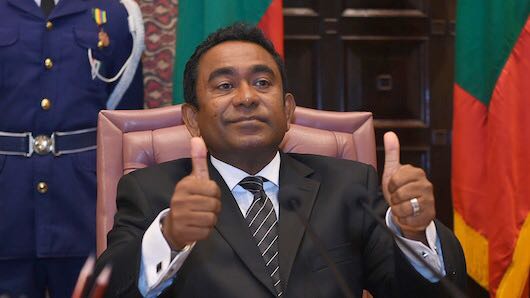Details emerge of EU sanctions on Maldives
Countries can work with ‘third states’ to maximise the impact of sanctions.

19 Jul 2018, 09:00
The European Union has urged the Maldives to allow the “normal function” of parliament and the judiciary, as details emerged of the sanctions to be imposed over the worsening political and rights situation.
An EU framework adopted Monday says member countries can freeze funds and impose travel bans on individuals and entities that undermine the rule of law or obstruct an inclusive political solution in the Maldives. There will also be sanctions on those involved in planning, directing or committing serious human rights violations abuses.
There is also a clause to keep compensation claims at bay.
Documents, seen by the Maldives Independent, say EU member nations are authorised to prevent such individuals from entering into or transiting through their territories. A list of these individuals and those associated with them will be made public.
Become a member
Get full access to our archive and personalise your experience.
Already a member?
Discussion
No comments yet. Be the first to share your thoughts!
No comments yet. Be the first to join the conversation!
Join the Conversation
Sign in to share your thoughts under an alias and take part in the discussion. Independent journalism thrives on open, respectful debate — your voice matters.




